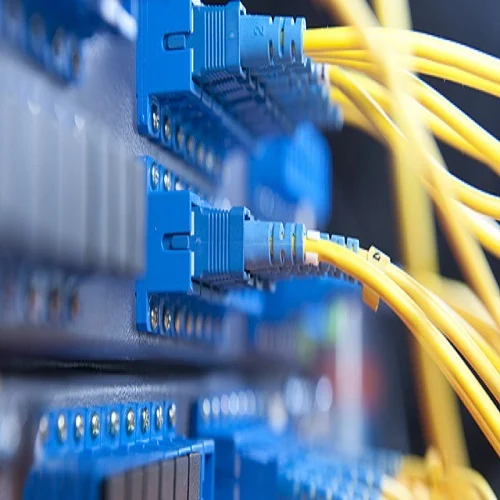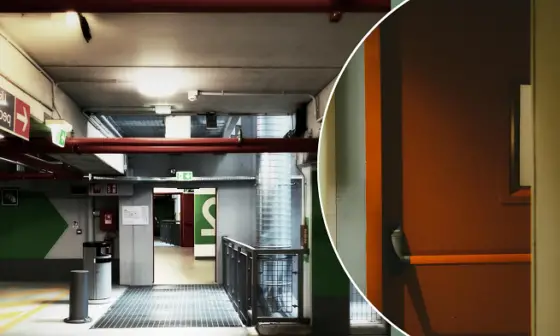
Cabling companies specialise in installing various types of wiring and cabling for homes, businesses, data centres, and other facilities across the UK.
From network and electrical wiring to fibre optics, phone lines, and more, experienced cabling contractors offer a range of installation and maintenance services related to connectivity infrastructure.
Structured Cabling
One of the core services provided by a cable company (such As Cable Services) is the installation of structured cabling for computer and phone networks. This involves running cables from a central point to outlets distributed throughout a building.
Structured cabling provides the physical infrastructure to enable local area network (LAN) connectivity. This allows devices like PCs, printers, servers, security cameras, and phones to connect to the network and internet.
A complete structured cabling system consists of:
- Cabling – Cat5e, Cat6, Cat7 copper cable or fibre optic cabling
- Outlets/ports – RJ45 Ethernet outlets, fibre optic terminals
- Patch panels – to connect and manage cables
- Network cabinet/rack – houses patch panels and network gear
- Pathways – conduits carrying cables through walls, ceilings, etc.
Cabling companies have the technical expertise to properly install all these components based on a client’s needs. This includes tasks like:
- Running cables through walls, ceilings, attics, etc.
- Terminating cables to outlets and patch panels
- Labelling cables clearly for identification
- Testing cables and network points to ensure proper performance
- Generating as-built documentation of the cabling system
For large structured wiring projects, cabling companies will work directly with network integrators and IT teams to bring the infrastructure vision to life.
Electrical Wiring
In addition to handling low-voltage communication wiring, many cabling contractors also provide electrical wiring services. This includes:
- Installing power cables and circuits for lighting, appliances and other uses
- Adding electrical outlets and switches
- Running wiring for specific applications like motor control and building management systems
- Integrating surge protection, backup power and smart capabilities
Experienced electricians on staff allow cabling companies to handle complete electrical rewiring projects or upgrades to existing systems. They can install just the power cabling or fully integrate lighting, switches and outlets to create a modern, connected electrical system. Safety and compliance with electrical codes are top priorities.
Audio Visual Installation
For commercial clients like offices, schools, hospitality, healthcare, and retail, cabling companies often provide audio visual (AV) solutions installation as well.
This can cover running cables for items such as:
- Video projectors and monitors
- Speakers and intercom/paging systems
- Video conferencing and telepresence equipment
- Digital signage and display solutions
- Room automation and control systems
Properly installing AV infrastructure allows for clearer video and audio signals and seamless integration of multiple technologies. Cabling teams work to minimise disruptions to occupants during AV upgrades.
Fibre Optic Cabling
Fibre optic cabling provides the ultra-fast backbone for modern data centre and telecom networks. Cabling companies are experts in installing fibre cabling infrastructure.
This involves:
- Running fibre optic cable between facilities
- Terminating cables using specialised splicing equipment
- Connecting to telecom rooms, network cabinets and rack hardware
- Testing with optical testers to verify signal performance
- Certifying fibre cable installation meets industry standards
Fibre allows tremendous data capacity and speed over long distances. So cabling companies work with clients like mobile carriers, ISPs, large corporations and others needing fibre links between sites.
Cable Management and Containment
An important finishing step of any cabling project is neatly managing and containing the installed wires and cables. Cabling contractors have several methods to streamline infrastructure:
- Cable trays – enclose cables routed above ceilings, under floors, etc.
- Conduit – route cables through sturdy tubing pathways
- Boxing – enclose cabling inside custom designed wall and ceiling boxes
- Under floor trunking – provides access to cables beneath raised floors
- Cable cleats and ties – neatly fasten and secure loose cabling
Proper cable management not only keeps infrastructure organised and accessible for maintenance, it also improves safety and site aesthetics.
System Documentation
Throughout the installation process, cabling companies provide detailed documentation of the infrastructure they implement. This includes:
- Cabling plans showing cable routes and endpoints
- Schematics detailing jack numbers, patch panel ports, etc.
- Equipment lists with makes/models and configurations
- Labelling systems explaining cable and component identifiers
- Testing and certification data
This system documentation is invaluable for administrators managing and updating infrastructure long after the cabling teams have completed the project.
Testing and Certification
Reputable cabling companies follow stringent testing and certification standards for every installation. This provides clients assurance that cabling will perform as expected for years to come.
They use advanced testing tools to verify:
- Electrical continuity and grounding
- Speed and throughput performance
- Noise, crosstalk and signal attenuation
- Faults indicating potential installation issues
Completed projects can be certified to industry standards like ISO 11801, EIA/TIA, BICS and more. Documentation of test results provides quality assurance.
Maintenance and Support
Even following expert installation, cabling systems need occasional maintenance, troubleshooting and upgrades. Cabling companies offer ongoing support to assist clients well after projects are finished.
This allows them to quickly diagnose and resolve issues like:
- Damaged or deteriorating cables
- Connector and termination failures
- Performance slowdowns
- New area cabling needs
- Additions and enhancements to existing infrastructure
They become trusted long-term partners in managing and evolving cable infrastructure.
Why Work with Professional Cabling Companies?
When wiring forms the backbone of electrical, telecom and AV systems, using experienced cabling companies pays dividends for:
- Expert project management and technical expertise
- Efficient execution with minimal disruption
- Adherence to building codes and industry standards
- Quality materials and installation methods
- Comprehensive testing and certification
This results in high-performance cabling infrastructure built to last using latest industry best practices.
Whether you need a complex structured cabling rollout, electrical rewiring, fibre optic links between sites or any other cabling project, partnering with professional cabling contractors ensures the job is done right the first time. Their breadth of experience across residential, commercial and industrial applications makes them invaluable allies.


